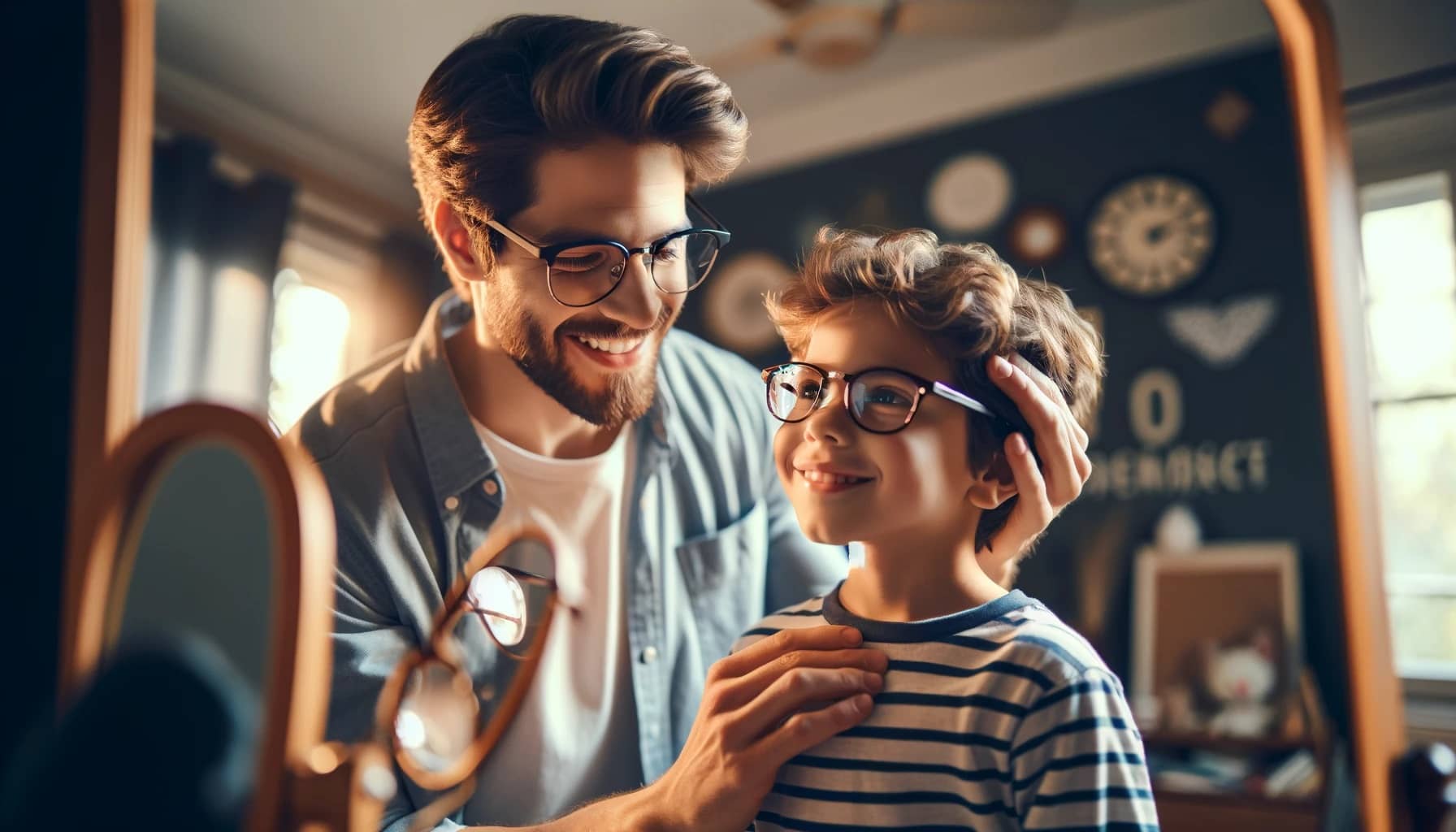Overcoming the Challenges of Getting Your Child to Wear Their First Pair of Glasses
Discovering that your child needs eyeglasses can be a daunting experience for both kids and parents alike. As a parent, it’s natural to feel anxious and even guilty, wondering if you could have done something differently to prevent this outcome. However, it’s crucial to remember that needing glasses is not a reflection of poor parenting or a child’s weakness. Instead, it’s an opportunity to support your child through a new challenge and help them embrace their eyewear with confidence.
When my twin daughters, now six years old, recently got their first pair of eyeglasses, I found myself grappling with a mix of emotions. As a mother of premature, low birth weight twins, I initially blamed myself, questioning if I had made any parenting mistakes or failed to provide them with a sufficiently healthy diet. However, I quickly realized that dwelling on these thoughts was unproductive and instead focused on accepting the situation and finding ways to support my girls through this transition.
Recognizing the Signs of Vision Problems
One of the first hurdles in getting your child glasses is identifying that they have a vision problem in the first place. Young children may not have the awareness or vocabulary to articulate that they’re having trouble seeing clearly. As parents, it’s important to be attentive to subtle signs that may indicate a vision issue:
- Squinting: If your child frequently squints when looking at objects, it could be a sign that they’re struggling to see clearly.
- Sitting too close to the TV: A child with vision problems may sit unusually close to the television or hold screens close to their face.
- Headaches: Frequent complaints of headaches can be a sign of eye strain caused by vision issues.
- Watery eyes: If your child’s eyes seem to water excessively, especially when focusing on a task, it could indicate that their eyes are working harder than they should be.
- Covering one eye: If your child covers or closes one eye when looking at something, it may suggest a vision imbalance between their eyes.
If you notice any of these signs, schedule an appointment with an eye doctor to have your child’s vision assessed.
Preparing Yourself and Your Child
Before focusing on preparing your child for glasses, it’s important to get yourself in the right headspace. Acknowledge any feelings of worry or guilt you may have, but don’t dwell on them. Reframe the situation as an opportunity to support your child’s health and wellbeing.
When talking to your child about getting glasses, emphasize the benefits and importance of clear vision. Explain that glasses are a tool to help them see better, just like a hearing aid helps people hear better. Encourage them to express any fears or concerns they have and address them with empathy and reassurance.
Making Glasses Fun and Fashionable
One way to help your child feel excited about their new glasses is to let them have a say in picking out their frames. Many eyewear retailers offer a wide variety of fun, colorful frames designed specifically for kids. Encourage your child to try on different styles and choose a pair that makes them feel confident and comfortable.
You can also look for books, movies, or TV shows that feature characters who wear glasses. Pointing out how smart, cool, or heroic these characters are can help your child reframe glasses as a positive attribute rather than something to be embarrassed about.
Helping Your Child Adjust
Once your child has their new glasses, it may take some time for them to get used to wearing them consistently. Be patient and encouraging during this adjustment period. If they’re reluctant to wear their glasses, try to make it a positive experience by praising them when they do wear them and gently reminding them of the benefits when they don’t.
It’s also a good idea to have a backup pair of glasses on hand, especially for young children who may be prone to misplacing or damaging their eyewear. Look for durable frames and consider adding scratch-resistant coatings to the lenses.
Promoting Eye Health
While glasses can correct vision problems, there are also things you can do to support your child’s overall eye health:
- Encourage outdoor play: Spending time outdoors and getting natural light exposure may help reduce the progression of myopia in children.
- Limit screen time: Excessive screen time can contribute to eye strain and may be linked to increased myopia. Encourage your child to take regular breaks from screens to look at objects in the distance.
- Serve eye-healthy foods: A diet rich in leafy greens, colorful fruits and vegetables, and omega-3 fatty acids can support healthy eye development and function.
- Schedule regular eye exams: Even after getting glasses, it’s important for your child to have regular eye exams to monitor their vision and ensure their prescription stays up-to-date.
Navigating your child’s first experience with glasses can feel overwhelming, but with the right preparation, attitude, and support, you can help them embrace this change with confidence. Remember, needing glasses is not a shortcoming – it’s a tool for helping your child see and experience the world more fully. By approaching this transition with positivity, empathy, and a bit of fun, you can set your child up for success both in their vision and their self-esteem.
